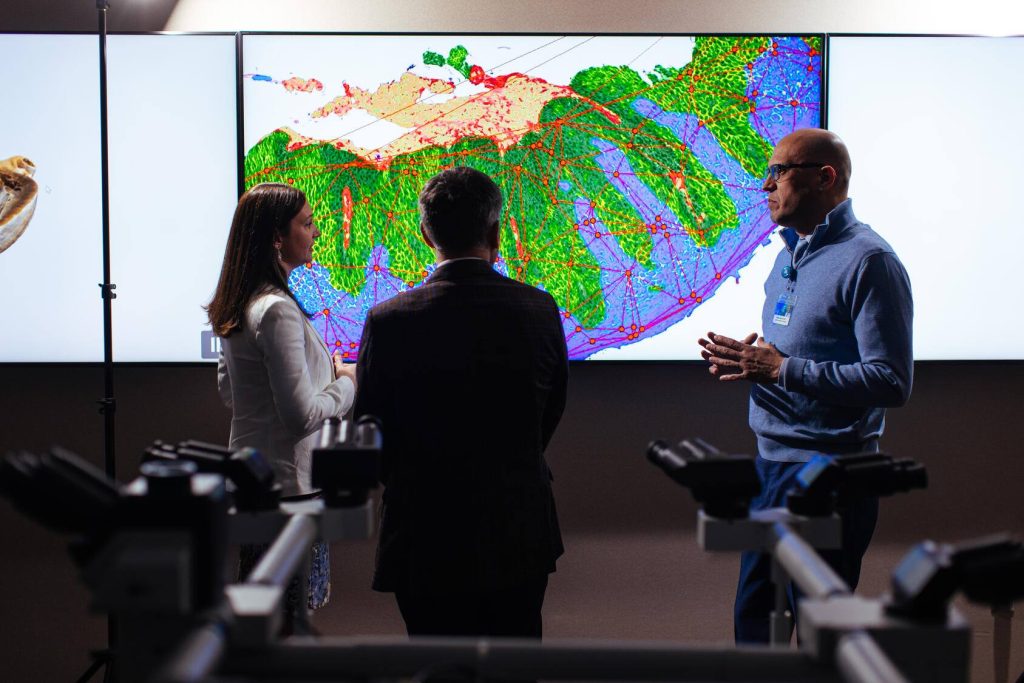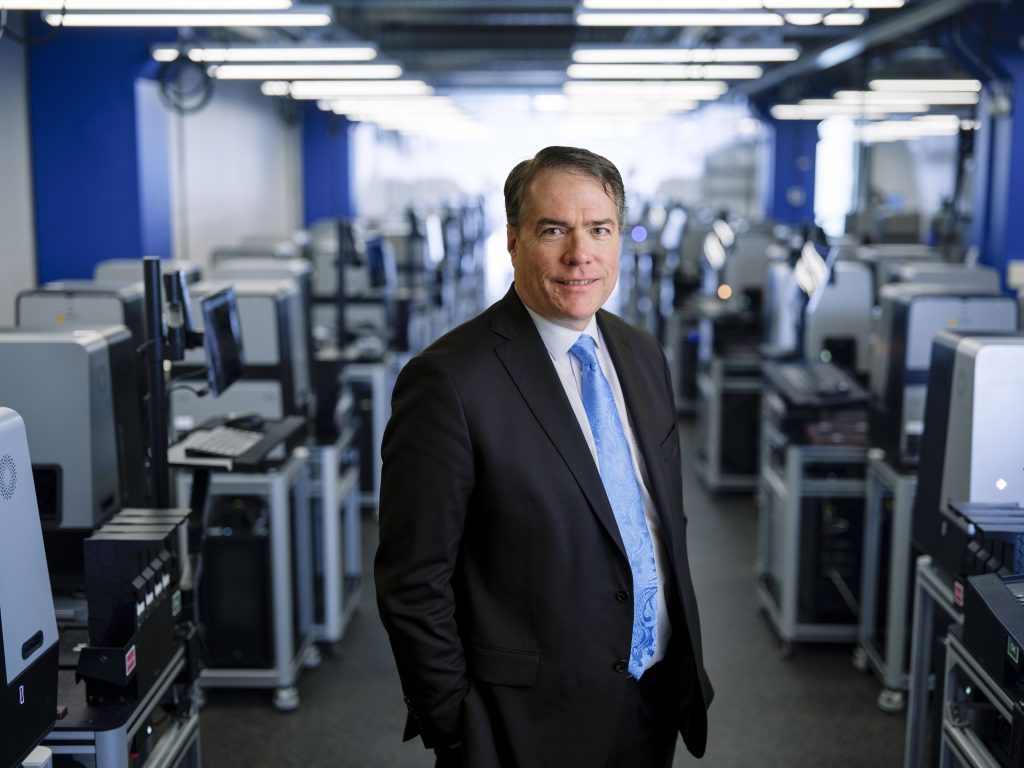-
Featured News
Mayo Clinic deploys NVIDIA Blackwell infrastructure to drive generative AI solutions in medicine

ROCHESTER, Minn. — Mayo Clinic took a pivotal step toward integrating AI solutions in the clinical setting with the deployment of NVIDIA DGX SuperPOD with NVIDIA DGX B200 systems, an advanced infrastructure that provides state-of-the-art AI compute capabilities.
Mayo Clinic and NVIDIA collaborated to enable the rapid innovation and development of foundation models in support of Mayo’s platform approach to healthcare, contributing to Mayo Clinic’s Bold. Forward. strategy and new innovations for generative AI solutions and digital pathology. These innovations are delivering new insights as Mayo is driving to improve patient outcomes and transform healthcare.

"Our aspiration for AI is to meaningfully improve patient outcomes by detecting disease early enough to intervene. What was once a hypothetical — 'If only we had the right data' — is now becoming reality thanks to AI and advanced computing," says Matthew Callstrom, M.D., Ph.D., medical director of the Department of Strategy and leader of Mayo Clinic’s Generative Artificial Intelligence Program.
The advanced computing infrastructure will initially support foundation model development for pathomics, drug discovery and precision medicine.
The NVIDIA Blackwell-powered DGX SuperPOD is built to efficiently process large, high-resolution imaging essential for AI foundation model training. Designed for speed and scalability, the Blackwell infrastructure enables Mayo Clinic to accelerate pathology slide analysis and foundation model development — reducing four weeks of work to just one, ultimately improving patient outcomes. This advanced computing infrastructure will also advance Mayo Clinic’s generative AI and multimodal digital pathology foundation model development.
Mayo Clinic, in partnership with Aignostics, developed a leading pathology foundation model called Atlas, trained on more than 1.2 million histopathology whole-slide images. With Atlas, Mayo Clinic clinicians and researchers can improve accuracy and reduce administrative tasks. The new computing capabilities will accelerate and improve clinical model development.

"This compute power, coupled with Mayo’s unparalleled clinical expertise and platform data of over 20 million digitized pathology slides, will allow Mayo to build on its existing foundation models. We’re transforming healthcare by quickly and safely developing innovative AI solutions that can improve patient outcomes and enable clinicians to dedicate more time to patient care while also accelerating commercial affiliations with other industry leaders," says Jim Rogers, CEO of Mayo Clinic Digital Pathology.
Journalists: Media kit with images for download available here.
###
About Mayo Clinic Digital Pathology
Mayo Clinic Digital Pathology facilitates the global scaling of digital pathology solutions to benefit clinicians and patients, advancing key areas such as scanning, storage, foundation model development and the creation and deployment of cutting-edge algorithms. Working with Mayo Clinic innovators and external collaborators, Mayo Clinic Digital Pathology is wholly owned by Mayo Clinic and seeks to incubate and start impactful companies while investing in and acquiring existing companies, spurring innovation across pathology.
About Mayo Clinic
Mayo Clinic is a nonprofit organization committed to innovation in clinical practice, education and research, and providing compassion, expertise and answers to everyone who needs healing. Visit the Mayo Clinic News Network for additional Mayo Clinic news.
Media contact:
- Terri Malloy, Mayo Clinic Communications, newsbureau@mayo.edu







